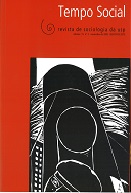Política econômica do segundo governo FHC: mudança em condições adversas
DOI:
https://doi.org/10.1590/S0103-20702003000200008Keywords:
Brazil, Economic policy, Fernando Henrique Cardoso' governmentAbstract
This paper analyses the macroeconomic policy of FHC's second government (1999-2002), that was marked by fiscal, foreign exchange and monetary changes. In the fiscal area, a primary superavit was generated and the efforts towards a structural reform were increased. Regarding foreign exchange policies, the move from administered exchange to one of dirty floating allowed for an adjustment of the high deficit in the current account that occurred in the first term of office. In the monetary field, the regime of inflation goals substituted the subordination of the monetary policy to the defense of the exchange regime. These alterations brought a more sustainable and transparent regime to the country, but its efficiency was limited due to the inheritance of the old regime, that generated unbalances and also to the international and domestic financial instabilities of the period. The new regime is adequate for the creation of conditions for the recovery of investments and for economic growth, but the main present chalenges have more to do with the institutional and regulatory aspects than with the macroeconomic policy regime.Downloads
References
BANCO CENTRAL DO BRASIL. (2003), “Nota para a imprensa, setor externo”. Brasília, Banco Central, ago.
BRESSER-PEREIRA, Luís Carlos. (2001), “A fragilidade que nasce da dependência externa”. Valor 1000, set.
CASTRO, Jorge Abrahão et al. (2003), “Evolução do gasto social federal: 1995-2001”.
Boletim Políticas Sociais. Instituto de Pesquisa Econômica Aplicada (Ipea), Diretoria de Estudos Sociais, fev., Brasília.
GIAMBIAGI, Fábio. (2002), “Do déficit de metas às metas de déficit: a política fiscal do governo Fernando Henrique Cardoso – 1995/2002”. Texto para Discussão, 93, Rio de Janeiro, BNDES.
OLIVEIRA, Gesner. (1999), “Histeria oportunista e realidade”. Folha de S. Paulo, 30/1, seção Tendências e Debates.
Downloads
Published
Issue
Section
License
Copyright (c) 2015 Tempo Social

This work is licensed under a Creative Commons Attribution-NonCommercial 4.0 International License.


